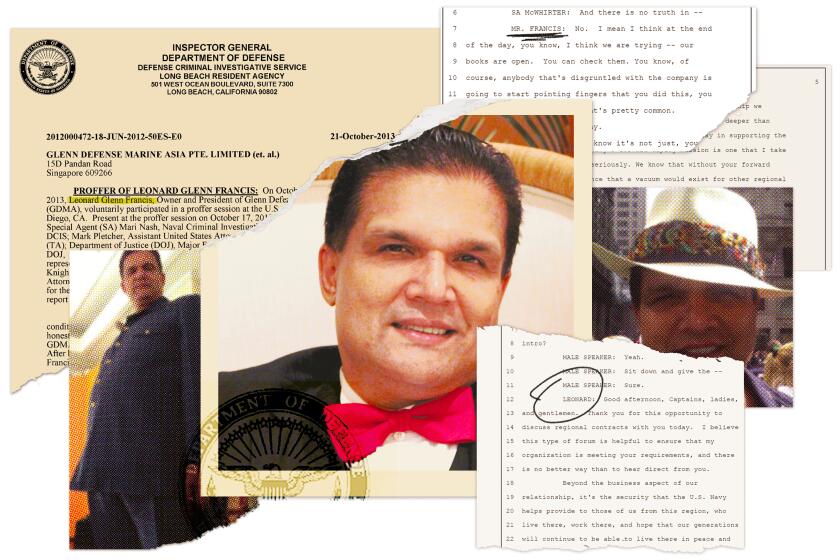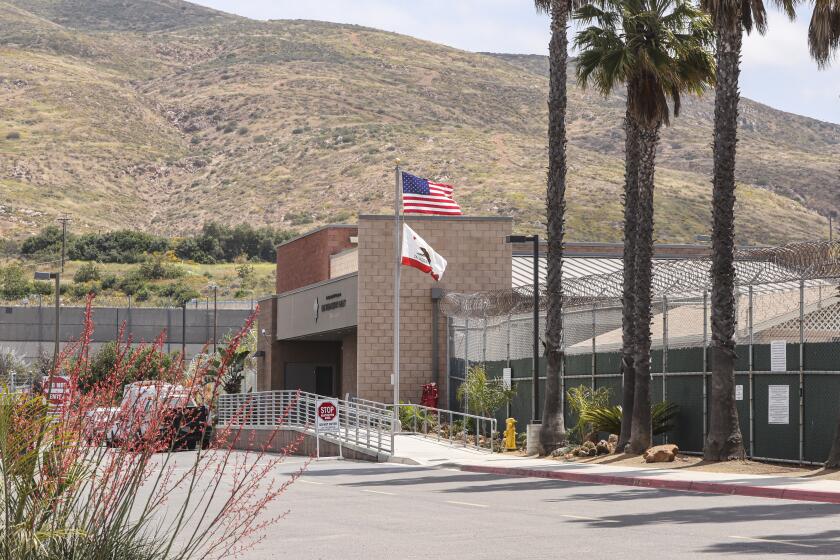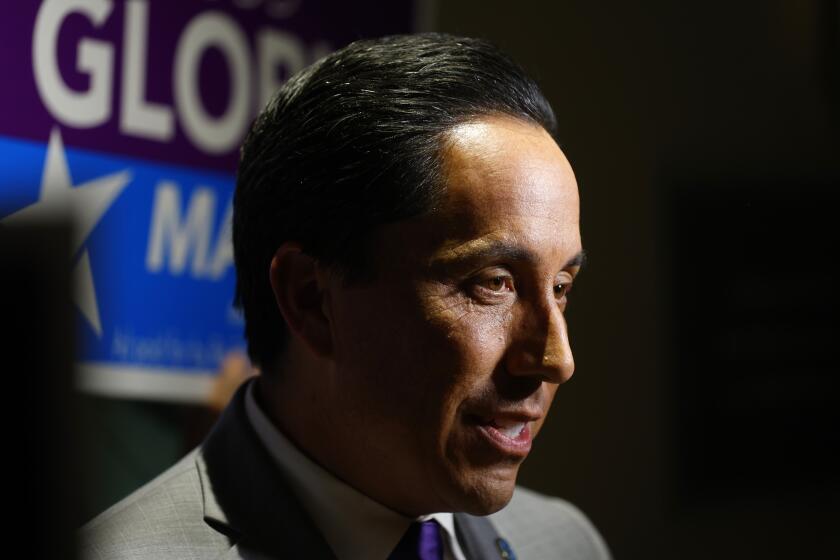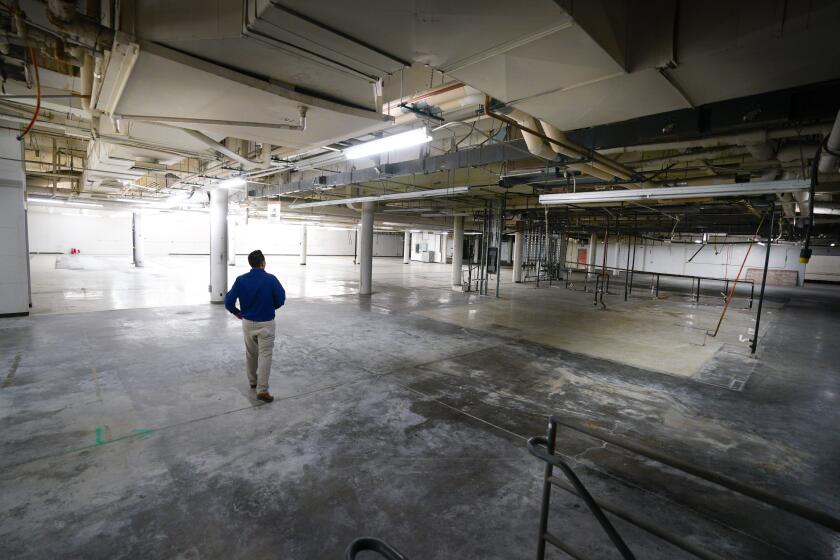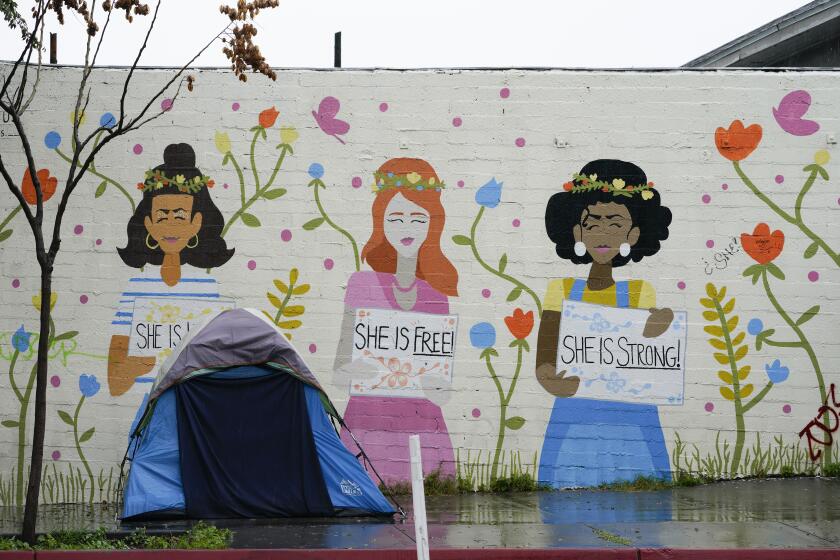Expert: Shooting review was impartial
Retired San Jose officer was paid $6,000
The independent expert hired to review the circumstances surrounding the shooting death of an unarmed man by a San Diego police officer in the Midway district was paid $6,000 by prosecutors for his work, records show.
The expert, Jeffrey A. Martin, is a veteran police sergeant who retired from the San Jose Police Department, has a law degree and runs a consulting firm that assists law enforcement agencies in their internal affairs investigations and disciplinary matters.
In an interview, Martin said he was contacted by the San Diego District Attorney’s office as part of the review to determine if criminal charges should be filed in the April 30 shooting of 42-year-old Fridoon Rawshan Nehad by San Diego Police Officer Neal Browder.
The review concluded the shooting was justified because Browder believed Nehad was armed and feared for his life.
Nehad’s family is suing the city in federal court, alleging civil rights violations.
Martin owns a consulting business and said that the majority of his work is done in support of law enforcement personnel, either in court cases or in internal affairs discipline investigations.
The department located him through the Commission on Peace Officer Standards and Training, a certification and training organization for state law enforcement. He has taught courses there on investigating officer involved shootings, and is also an expert on using deadly force and analyzing video evidence.
Martin said his conclusions were based on the materials he was given to review and nothing more.
“The analysis is the analysis,” he said. “It should never change, whether or not you are working to support law enforcement or in opposition to law enforcement.”
Over the past several years he has been involved in both court cases and administrative proceedings involving police officers.
In one, he testified against a former police officer who was charged with excessive force in the city of Ceres in Stanislaus County. The officer was convicted.
Martin also was cited in a 2012 decisions by a judge in San Luis Obispo County, who overturned the firing of a police officer in Grover Beach who lost his job for excessive force when he used his Taser during an arrest.
Martin also testified in July at an administrative hearing as an expert on video evidence for a Milwaukee police officer, who was fired after he struck a handcuffed suspect inside a police interrogations room.
For his work on the Nehad case, Maring was paid $200 per hour, according to a fee agreement inked Sept. 18 and obtained by U-T Watchdog under the California Public Records Act.
In all he worked about a week, logging 30.2 hours. The details of what Martin did aren’t known, because that information was blacked out by the District Attorney’s office.
A lawyer for the office said that the information was part of the investigative file of the shooting review, would reveal investigative techniques and revealing the information “would chill the deliberative and decision-making process of whether a crime has occurred.”
The office also declined a request to release a copy of Martin’s report, citing the same reasons.
Martin too declined to discuss the tasks he undertook. A 15-page letter to San Diego Police Chief Shelley Zimmerman from District Attorney Bonnie Dumanis describing the investigation said Martin reviewed case materials and a security video from a nearby business. He concluded Browder’s actions were reasonable.
Louis “Skip” Miller, the lawyer for the Nehad family, said Martin’s opinions were not persuasive.
“It’s obvious window dressing,” Miller said. “They went out and found a guy and paid him, and he pretty much did what they wanted him to do.”
Martin’s work was only one piece of the analysis done by the District Attorney’s office. The conclusion also relied on witness statements, Browder’s own statement, police reports, a visit to the site off Hancock Street, and a legal analysis of whether the shooting was justified under the laws that allow police officers to use deadly force.
Get Essential San Diego, weekday mornings
Get top headlines from the Union-Tribune in your inbox weekday mornings, including top news, local, sports, business, entertainment and opinion.
You may occasionally receive promotional content from the San Diego Union-Tribune.

